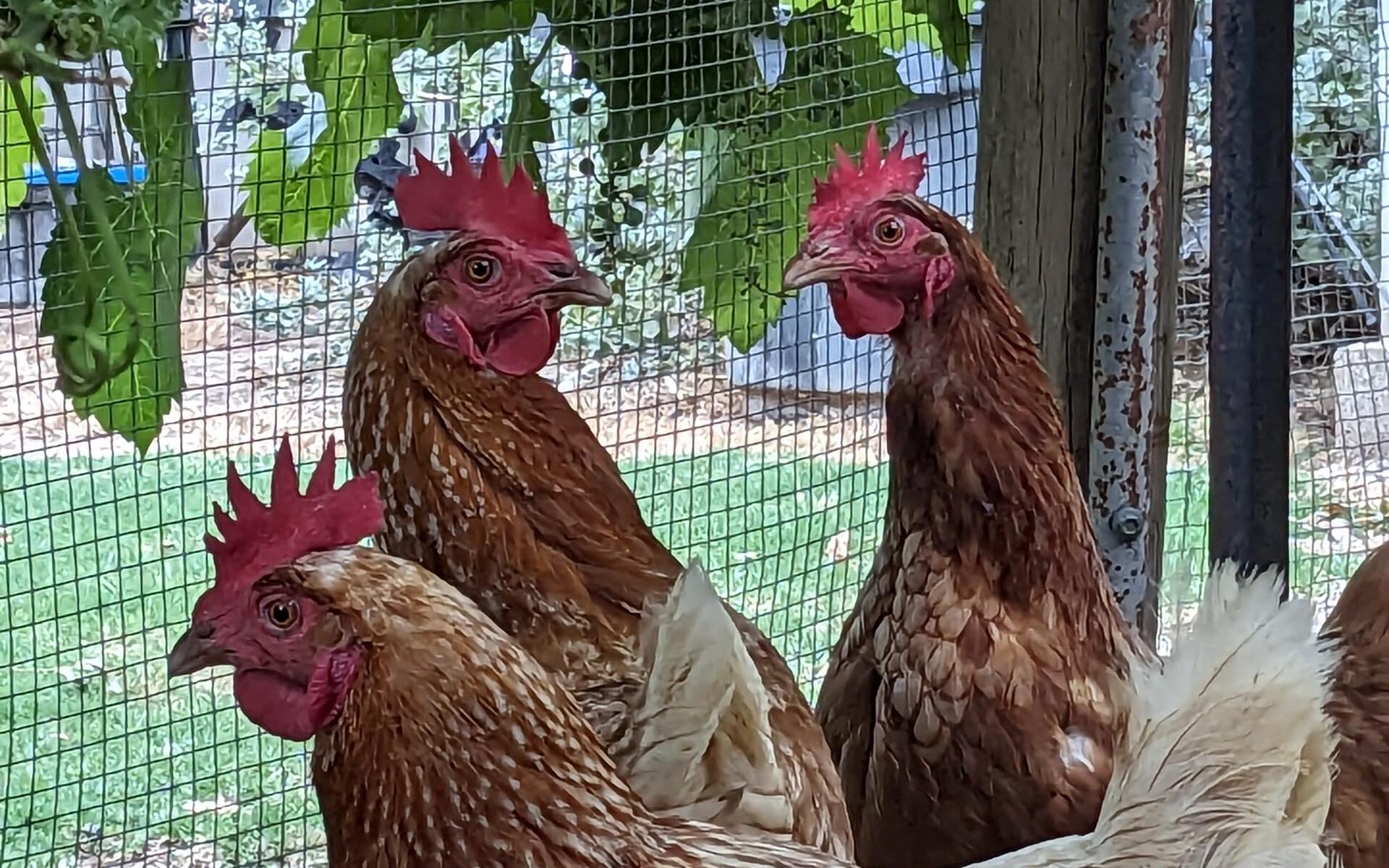Laying hens -what are the basics?
Feeding:
A laying hens’ health and egg production depend on a balanced diet. Chickens are omnivores therefore their diet does not consist of food scraps alone but includes a meat content. You will also see that spiders and creepy crawlys will not survive long in a chicken coop, even small snails! Laying hens need protein and calcium to form an egg. If there is not enough in their feed, it will be hijacked from the stores needed to grow and maintain healthy bodies.
Formulated feeds for laying hens provide for the correct balance of protein and energy to support growth, egg production and daily functions, These feeds usually have vitamins and minerals to support egg production and essential body functions and also calcium for strong bones and good quality egg shells. Hens do enjoy picking at scraps and grazing in the garden which provides a source of vitamins and results in better yolk colour but doesn’t provide a balance of essential nutrients.
Plenty of cool clean water should be available for maximum egg production. A lack of water may cause the hen to cease to lay and her comb turn a blue/black colour. A hint to help keep the water clean is to elevate the water container up off the ground a little (whilst keeping it in easy reach) so that dirt is not sent flying into the container as the hens scratch around in the earth. Remember that three times as much water may be required in extremely hot weather. Consider purchasing a specialised poultry drinker to help reduce water contamination and provide a visible indication of the stored water level.
Housing:
Just like us, your hens will want to shelter from rain, wind and strong sunlight. They also need to feel safe and secure from predators or dogs. It’s natural for poultry to perch at night. Without a perch, they will crowd together in a corner at night and a pile of manure will form, sticking to their feet and transferring to nest boxes and eggs. Provide a perch at night and they will remain cleaner. It needs to be a comfortable jumping height around 600mm and long enough for each hen to have 250mm space. Young hens may need training to use the perch at night. It only takes a few visits to the hen house a dusk each night to place them on the perch and they will soon get the hang of it.
Nesting space in the form of boxes can be purchases or home made. They need a comfortable, dry, separate area. A good nesting medium is shellgrit as it helps to keep the eggs dry and clean. It also provides a form of calcium and grit which are good for hens to ingest as they peck around in the nest. As a rule, 6 hens require about 1 sqm of nesting space.
Health:
Laying hens can suffer from worms, mites infections and parasites. Feel free to ask if you have any concerns as there are medicines, treatments and supplements available.













Uncle Alber's special price, get in quick!
#dogfood #chalkboardspecials ... See MoreSee Less
0 CommentsComment on Facebook
Carrots 🥕🥕🥕
Liking Caleb's artistic skills 😊
#chalkboardspecials ... See MoreSee Less
0 CommentsComment on Facebook
LAST DAYS of our Tuckers catalogue sale
ends tomorrow 1.30pm
www.sandersfodder.com.au/catalogues/tuckers-winter-catalogue-3/
#cat #dog #horse #pet #garden #farm #chalkboardspecials ... See MoreSee Less
0 CommentsComment on Facebook
Last week of our catalogue sale - ends June 22nd
www.sandersfodder.com.au/catalogues/tuckers-winter-catalogue-3/ ... See MoreSee Less
0 CommentsComment on Facebook
Get onto those weeds now
Spray equipment in store
#weedsprayers #herbicides #chalkboardspecials ... See MoreSee Less
0 CommentsComment on Facebook